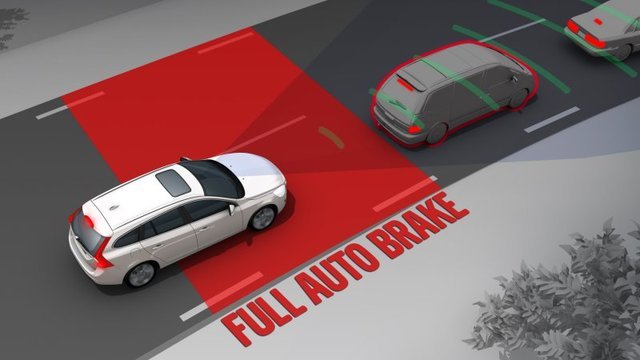NHTSA Adding Automatic Braking to Recommended Safety Tech List

Specifically, the National Highway Traffic Safety Administration is recommending that future vehicles come equipped with crash imminent braking and dynamic brake support. In the agency's view, the first system begins slowing a model automatically when front crash sensors believe a collision is imminent. Alternatively, the latter technology applies supplemental braking if the driver isn't slowing enough to avoid an accident.
To be clear, the addition of the two braking systems does not force cars to have them. "This would not affect the [crash] rating nor does it mandate they be included on all vehicles, but it would be noted on our site whether the vehicle included it or not," said DOT spokesperson Catherine Howden to Autoblog. Their inclusion is meant to encourage buyers to consider the electronics in a purchase, and automakers may make the tech more widely available now. The recommended safety list also includes forward collision warning, lane departure warning and rearview cameras.
Emergency braking systems are slowly becoming the norm in safety evaluations. The Insurance Institute for Highway Safety now requires it for a model to earn a Top Safety Pick + rating, and the tech is a must to score five stars in the Euro NCAP crash test.
Adding the crash avoidance systems grew out of the DOT's desire to revise its NCAP standards to keep improving driver safety. This might not be the end of the changes either. "NCAP is a critical tool for enhancing safety, so we are also looking at additional innovations to the program to capitalize on this exciting period of progress in safety technology," said NHTSA Administrator Mark Rosekind.


